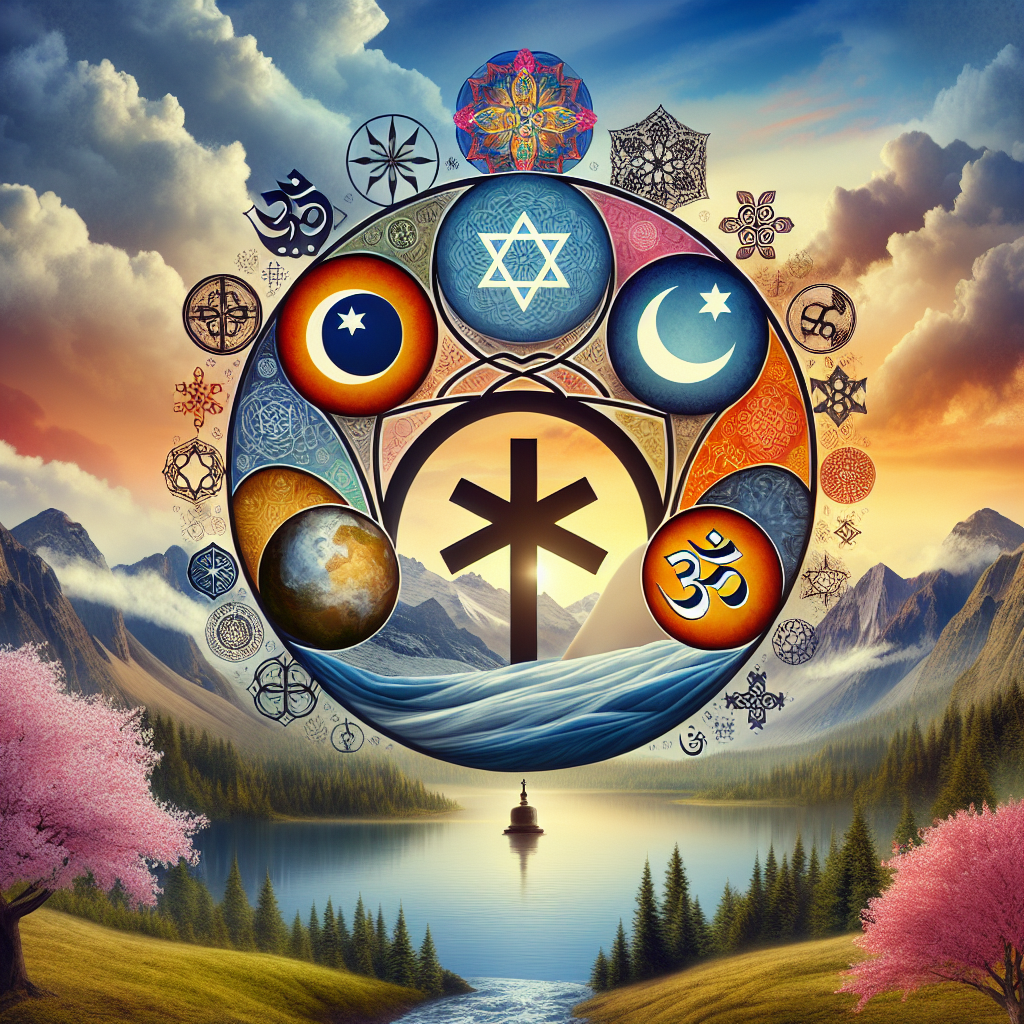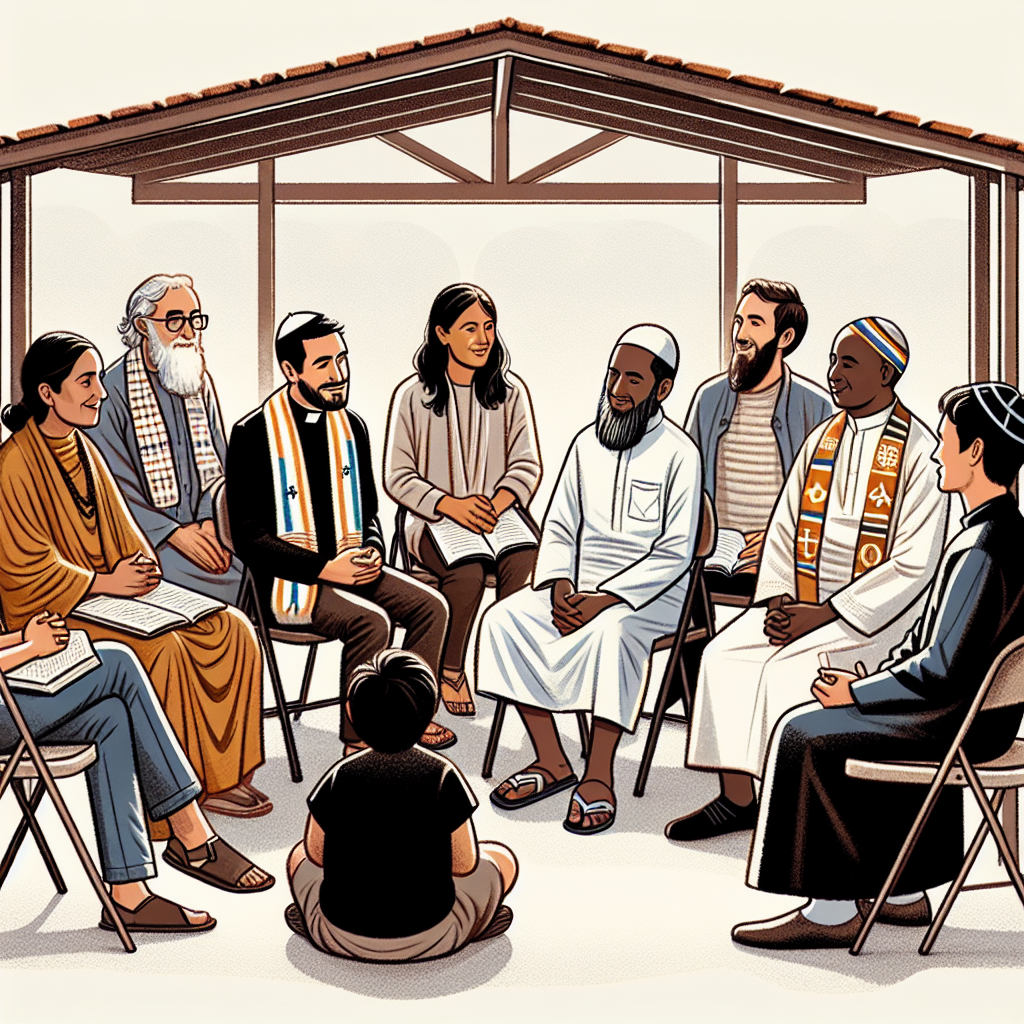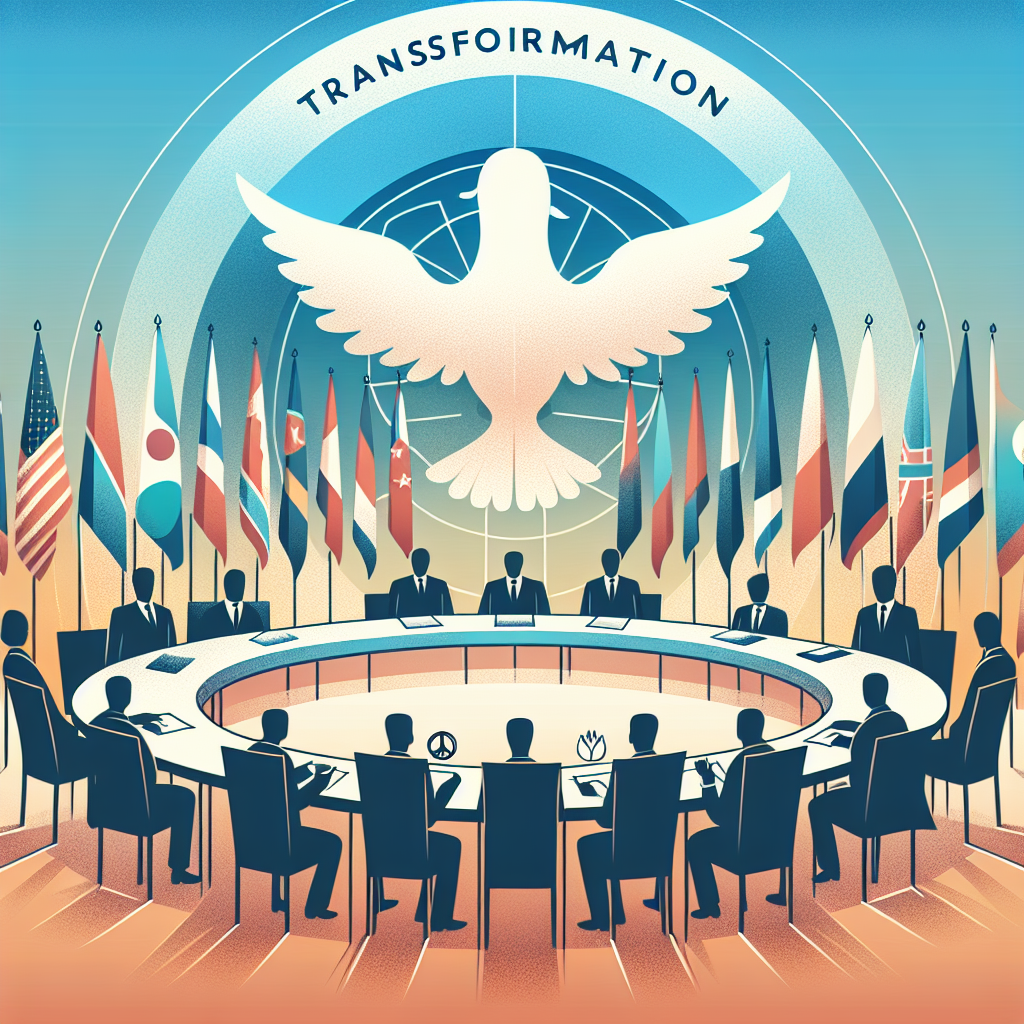In today’s rapidly evolving geopolitical landscape, we bear witness to a seminal event – international peace talks have commenced. Yet beneath the diplomatic veneer, there is a hidden factor at play shaping outcomes in ways we rarely acknowledge: faith. As an often overlooked catalyst for transformation, religion plays a crucial role not only in facilitating dialogue but also in guiding our understanding and response to pressing environmental issues.
Science has presented us with hard evidence – climate change is real, its impact substantial and indiscriminate. But pivotal to how societies interpret and react to these scientific findings are their religious beliefs. Often serving as moral compasses, they influence both individual actions and societal norms.
Religion’s human impact is indeed profound; it fosters resilience during crises like natural disasters exacerbated by climate change. It instills hope while encouraging community-based responses such as creation care initiatives within Christian communities or Islamic teachings advocating for stewardship of Earth.

This isn’t just happening on an individual level either; policy responses from governments worldwide increasingly reflect this interfaith involvement in environmental action too. The Vatican’s endorsement of sustainable practices under Pope Francis’ leadership reflects the broader incorporation of religious wisdom into policy-making processes.
A cascade effect ensues where industries begin aligning business models toward sustainable practices reflecting ethical principles inherent across multiple religions – compassion for other beings and respect for nature itself.
The technology industry too isn’t immune from these transformations; they’re creating platforms enabling faith communities globally to mobilize resources swiftly in response to ecological emergencies.
But what does this mean on a macro scale? The intertwining of religion with environmental policy, industry changes, and technological solutions is shaping a new form of global diplomacy – spiritual ecology. It emphasizes the sacredness of nature and humanity’s responsibility to protect it.
As we look to future scenarios, peace talks will no longer be confined to discussing territorial boundaries or economic cooperation; they will also address collective environmental responsibility, deeply rooted in shared spiritual values.
The implications are enormous – this can ultimately reshape the way nations interact with each other and the planet. After all, what better way to foster unity than by nurturing a cause dear to all – our Earth?
And as readers interested in the interplay between spirituality and global developments, let us reflect on what part we play in this story of transformation? Our actions matter too. From advocating for sustainable policies within our respective religious communities to supporting businesses aligned with these ethical frameworks – every contribution counts towards realizing a harmonious existence for everyone on our planet.


